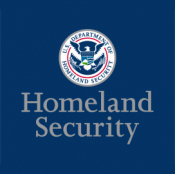DHS taps McAfee VP to head cybersecurity division
Posted by: Jon Ben-Mayor on 08/06/2013 12:15 PM
[
 Comments
]
Comments
]
The U.S. Department of Homeland Security (DHS) is looking to bring over McAfee vice president Phyllis Schneck as the next deputy undersecretary of cybersecurity; this division takes a leading role in protecting U.S. networks from foreign and domestic hackers.
 The Wall Street Journal says that on paper, Schneck is tasked with protecting American networks from cyber threats. In practice, she has to navigate a federal bureaucracy and power struggles that have prevented Washington from doing that. DHS meantime has to figure out how to implement Obama’s executive order this year on cybersecurity protections. It also helps pass on government data on specific cyber threats to Internet service providers.
The Wall Street Journal says that on paper, Schneck is tasked with protecting American networks from cyber threats. In practice, she has to navigate a federal bureaucracy and power struggles that have prevented Washington from doing that. DHS meantime has to figure out how to implement Obama’s executive order this year on cybersecurity protections. It also helps pass on government data on specific cyber threats to Internet service providers.
 Schneck has extensive experience working with both the public and private sectors, and is the latest example of the government’s close relationship with large security companies. She’s worked 14 years in the security industry and has a Ph.D. in computer science from the Georgia Institute of Technology, according to McAfee’s website. For eight years, Schneck was chairman of the national board of directors for the InfraGard program at the FBI, meant to facilitate information sharing on cyberthreats between the feds and private companies.
Schneck has extensive experience working with both the public and private sectors, and is the latest example of the government’s close relationship with large security companies. She’s worked 14 years in the security industry and has a Ph.D. in computer science from the Georgia Institute of Technology, according to McAfee’s website. For eight years, Schneck was chairman of the national board of directors for the InfraGard program at the FBI, meant to facilitate information sharing on cyberthreats between the feds and private companies.
She faces a challenge in confronting a leadership muddle in Washington over how to govern Internet security. Her predecessor, cybersecurity veteran Mark Weatherford, stayed in the job for less than 18 months and left in April. His interim replacement, Bruce McConnell, announced his departure from DHS in July.
A DHS official declined to comment. Reached by phone, Schneck also declined to comment.
Schneck is “smart and one of the hardest workers in the field,” said Alan Paller, founder of the Sans Institute, a cybersecurity research and education program. But DHS, as an institution, lacks the “tools because they don’t have the technical skills to drive change,” he said.
 The Wall Street Journal says that on paper, Schneck is tasked with protecting American networks from cyber threats. In practice, she has to navigate a federal bureaucracy and power struggles that have prevented Washington from doing that. DHS meantime has to figure out how to implement Obama’s executive order this year on cybersecurity protections. It also helps pass on government data on specific cyber threats to Internet service providers.
The Wall Street Journal says that on paper, Schneck is tasked with protecting American networks from cyber threats. In practice, she has to navigate a federal bureaucracy and power struggles that have prevented Washington from doing that. DHS meantime has to figure out how to implement Obama’s executive order this year on cybersecurity protections. It also helps pass on government data on specific cyber threats to Internet service providers. Schneck has extensive experience working with both the public and private sectors, and is the latest example of the government’s close relationship with large security companies. She’s worked 14 years in the security industry and has a Ph.D. in computer science from the Georgia Institute of Technology, according to McAfee’s website. For eight years, Schneck was chairman of the national board of directors for the InfraGard program at the FBI, meant to facilitate information sharing on cyberthreats between the feds and private companies.
Schneck has extensive experience working with both the public and private sectors, and is the latest example of the government’s close relationship with large security companies. She’s worked 14 years in the security industry and has a Ph.D. in computer science from the Georgia Institute of Technology, according to McAfee’s website. For eight years, Schneck was chairman of the national board of directors for the InfraGard program at the FBI, meant to facilitate information sharing on cyberthreats between the feds and private companies.She faces a challenge in confronting a leadership muddle in Washington over how to govern Internet security. Her predecessor, cybersecurity veteran Mark Weatherford, stayed in the job for less than 18 months and left in April. His interim replacement, Bruce McConnell, announced his departure from DHS in July.
A DHS official declined to comment. Reached by phone, Schneck also declined to comment.
Schneck is “smart and one of the hardest workers in the field,” said Alan Paller, founder of the Sans Institute, a cybersecurity research and education program. But DHS, as an institution, lacks the “tools because they don’t have the technical skills to drive change,” he said.
Comments





